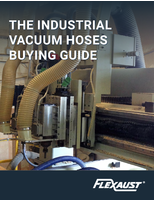Wireless Monitoring and Alarming System for IVF Incubators

A Clinic Uses Accsense to Cover All Monitoring Points and Values
CHESTERLAND OH — CAS DataLoggers has recently provided the automated monitoring and alarm system for an in vitro fertilization clinic which needed a wireless setup to monitor and alarm several double stack CO2 injection incubators. These medical incubators were used for embryonic implantation as opposed to storage, separating embryos from different patients. Staff need to maintain the incubators at a constant temperature of 37°C (99°F) and a relative humidity of 99%. Each incubator is equipped with an external CO2 tank which lasts about a month before needing to be replaced. Staff use sensors to determine the CO2 levels inside the incubators to keep them at acceptable limits (about 5% concentration). However, sensor accuracy is vulnerable to temperature and humidity fluctuations within the incubators caused by opening the doors. Therefore this complex setup required an automatic system to monitor and alarm temperature, humidity and CO2 in real time to alert staff of unsafe levels and help prevent any losses.
After taking their call, CAS DataLoggers visited the clinic to install an Accsense system consisting of 3 Accsense Wireless Current Data Loggers attached with Velcro to the side of each double stack unit. All the data loggers communicated with an Accsense B1-06 Wireless Data Logger Gateway which was mounted on a nearby wall.
Offering multi-input continual monitoring, each wireless datalogger featured 6 4-20mA inputs which were connected to 2 external temperature and humidity sensors along with 2 external CO2 sensors to cover each double stack incubator. All the necessary values were covered this way, with 2 external 24V power supplies powering the probes. Each data logger's wireless range extends out to 90' indoors without obstructions and can also act as a repeater for other logger signals. CAS DataLoggers also provided the clinic with NIST-traceable calibration certificates for a competitive cost.
The wireless gateway uses built-in 10/100BaseT Ethernet and supports DHCP and static IP addressing. Diagnostic LEDs provide clear status indication. In the event the gateway can't be reached, individual pods store up to 255 data points until a connection is restored, while the gateway's 1900-point sample data buffer further ensures continual monitoring.
Each logger's 2 digital inputs enable alarm device connection to sirens which activate when the doors are opened a certain number of times. User-set alarms also watch for unsafe temperatures, humidity and CO2 levels and will send email, pager or phone warnings to multiple designees whenever an alarm triggers.
Cloud-based data storage and reporting enables effective monitoring as each pod monitors and logs data, giving staff the ability to view and remotely access data in real-time. The wireless gateway sends all this data to the secure Accsense cloud server or as a local ASCII stream, which staff can use with their own custom software such as LabView. This data can also be downloaded as a CSV file for use with many database applications.
Additionally, the clinic's online Accsense account gives instant access to charts showing all measurement history with ranges as narrow as 5 minutes or as wide as 90 days. The account also features a customizable interface with a dashboard showing the most recent measurements from all sensor pods. Clinic personnel now retrieve all readings for offline analysis, login to access reports and graphs, and can modify the system setup from anywhere they're connected to the Internet.
Now the clinic relies on Accsense to notify employees when any of the incubator environments are suddenly becoming compromised. Whenever this happens, the system makes alarm phone calls until staff designees respond and take safety measures. Likewise, the system sends all readings to the cloud so that regulators have proof that best practices were followed. Accsense was particularly cost-effective for this unique application, covering 6 monitoring points and 3 separate values with just 3 data loggers and a gateway.
For more information on our Accsense systems for clinics, hospitals and cleanrooms, or additional Accsense pods using Power Over Ethernet for cost-effective medical monitoring, contact a CAS Data Logger Applications Specialist at (800) 956-4437 or visit the website at www.DataLoggerInc.com.
Contact Information:
CAS DataLoggers, Inc.
12628 Chillicothe Road
Chesterland, Ohio 44026
(440) 729-2570
(800) 956-4437
sales@dataloggerinc.com
www.dataloggerinc.com




